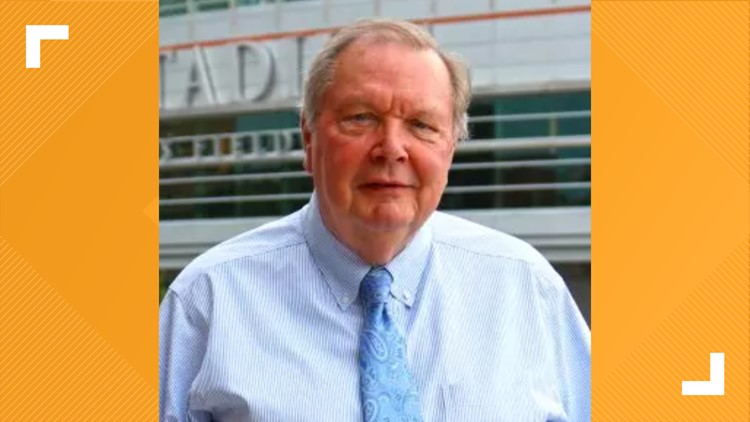KNOXVILLE, Tenn. — Journalism students who study at the University of Tennessee are usually familiar with Dr. Sam Swan. After 37 years of teaching in the College of Communication and Information, he has worked with thousands of students who were just getting started in their careers.
In December, he will step down from his role as a professor at UT and start his retirement, according to officials. To commemorate his career, the UT Mortar Board Honor Society invited him to give a talk on his achievements.
The event will be held on Wednesday at 7 p.m. Anyone interested can stop by the Student Union auditorium for the "Last Lecture with Sam Swan."
Swan started his career more than 50 years ago in broadcast journalism. Over the years, he started working in broadcast management and broadcast education before pivoting to training journalists internationally. He started his first job in 1967 as a radio news reporter and anchor at KFVS-AM in Cape Girardeau, Missouri.
After graduating with a communications degree from Southeast Missouri State University, he started working in Sri Lanka in the early 1970s. There, he lived with host families and consulted with the Farm Broadcasting Service to create radio programs meant to reach young farmers.
In 1985, he became the head of the Department of Broadcasting at the University of Tennessee and later served as the Interim Director of the School of Journalism and Electronic Media.
He also helped manage WUTK, the school's student radio station and integrated it into the department's curriculum. He also produced a weekly news program called "UT Today" that aired for more than 20 years at WBIR.
During his time at UT, he led students on international trips to Prague where they could get international reporting experience before graduating. He also developed a program in Sydney, Australia where students could spend a semester learning about reporting.
Later in his career, Swan started conducting workshops for reporters in more than 50 countries, according to officials. They were meant to help newly-licensed stations in Central and Eastern Europe, bolstering efforts to build a free press and sustainable media businesses in the region.
And Wednesday evening, he is expected to speak about these kinds of experiences and how they impacted his perspective and career. Anyone not able to attend in person can watch the talk online.



